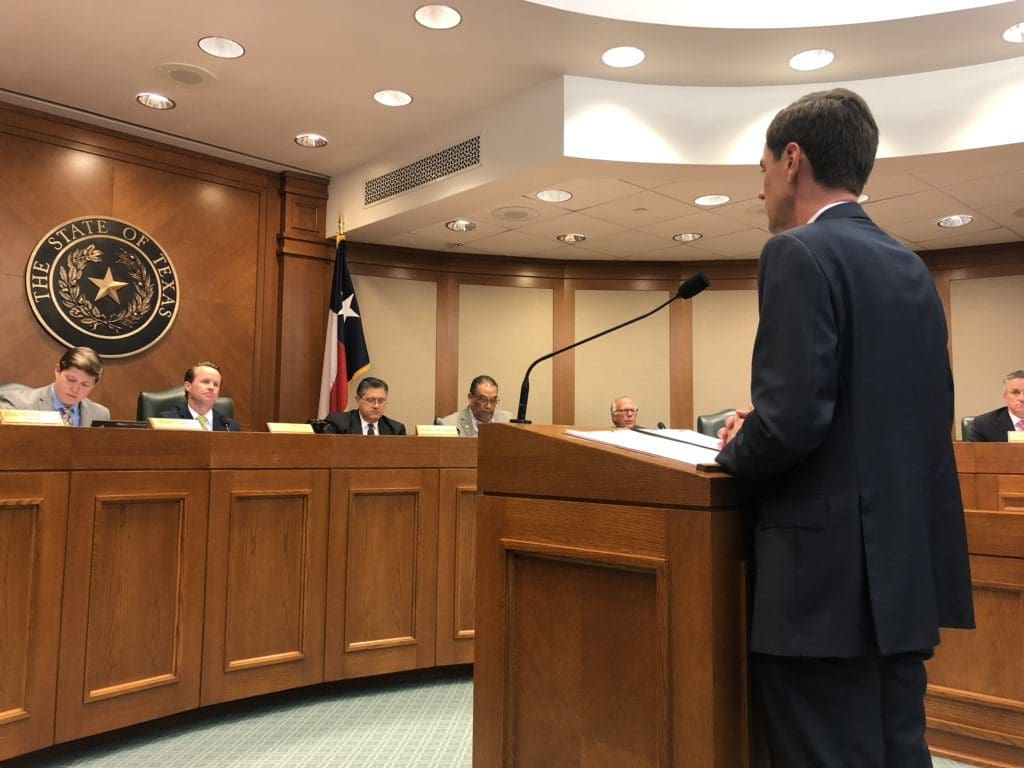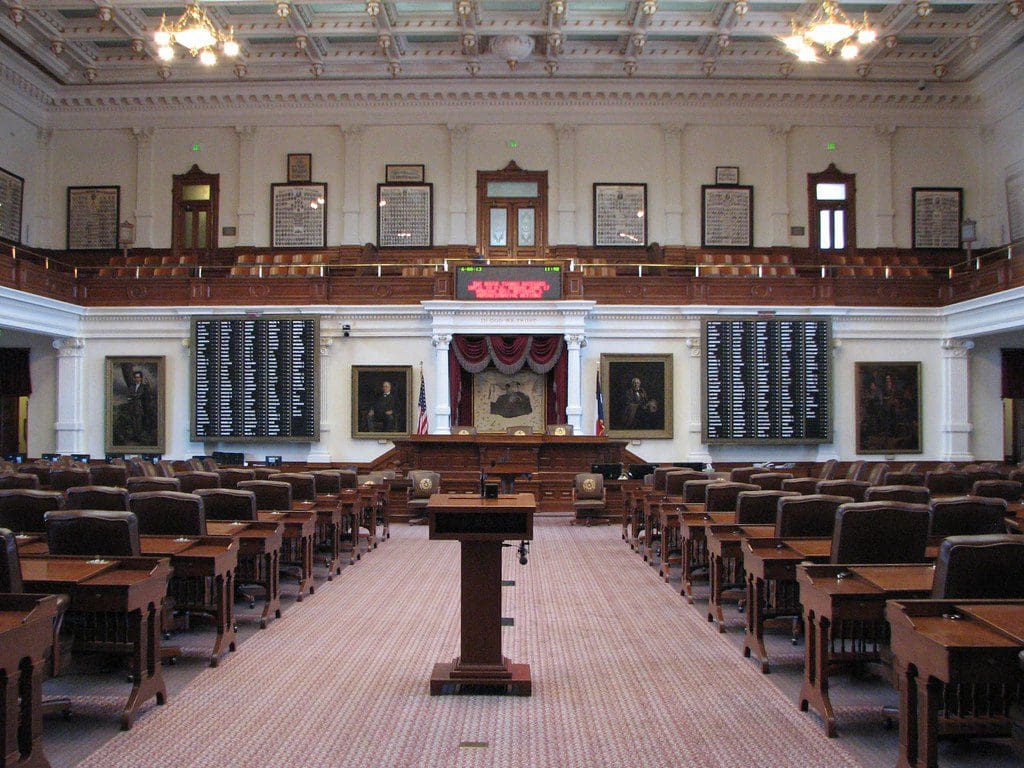A bill to end the onerous practice of taxpayer-funded lobbying was heard today in the Texas House State Affairs Committee.
A long-standing practice in the halls of the Texas Capitol, taxpayer-funded lobbying refers to cities, counties, and other local governments or taxing entities spending money to lobby the legislature. Often times, it is done in an effort to take on pro-taxpayer policies such as property tax relief and reform or measures of increased accountability and transparency.
Just days before the 86th legislative session gaveled in, freshman State Rep. Mayes Middleton (R–Wallisville) filed House Bill 281, which would ban the practice in Texas.
“This legislation levels the playing field between urban and rural Texas in the legislature. It also levels the playing field between the taxpayers and those who are often paid to work against them,” Middleton told the committee in his opening remarks.
“The funds that are used to pay lobbyists divert money away from important community services and instead line the pockets of Austin lobbyists,” Middleton added. “House Bill 281 encourages direct communication between local communities and state legislators by removing this costly taxpayer-funded middleman.”
While legislation to end tax-funded lobbying has been filed in previous sessions, support for ending the practice has been growing in recent years. The Republican Party of Texas added it to its list of legislative priorities during its convention last June, and even Gov. Greg Abbott voiced his support for ending the practice after the City of Tyler made plans to spend $200,000 during the legislative session to lobby against property tax reform.
In fact, of all the lobbyists roaming the halls in the Texas Capitol, around 30 percent of them have at least one taxpayer-funded client, with local governments spending $41 million a year on Austin lobbyists, according to Middleton.
“As a citizen of Texas, I find nothing to be more wrong than to allow cities, counties, and other taxing entities to lobby against legislation that favors us,” said Terry Harper, who came down to support the legislation.
Harper was not alone, as droves of citizen-taxpayers came to speak in favor of the bill. Citizens who came to testify against taxpayer-funded lobbying were also able to give testimony on the property tax reform legislation in the House Ways and Means Committee as well, since both were scheduled for the same day.
Charles Bickley, a citizen from the Rio Grande Valley, pointed out that in Harlingen, the amount spent on taxpayer-funded lobbyists could pay for two additional police officers.
Michelle Davis, from League City, thanked Middleton for “having the courage to file the bill,” adding, “We the taxpayers have felt ignored for many years, and it feels like a new day in Texas.”
Because the legislation is among the five legislative priorities of the Republican Party of Texas, several members of the State Republican Executive Committee came to Austin to support the bill.
Those representing local officials and taxpayer-funded lobbying organizations predictably testified against the reform, claiming it would all but bar them from keeping up with the legislature and engaging with their lawmakers.
As Cheryl Johnson, the Tax Assessor-Collector for Galveston County, highlighted in her testimony for the bill, local officials often find the bandwidth to make the trip to Austin to testify against property tax reform and relief legislation.
Opposition also came from the Professional Advocacy Association of Texas or, as one witness put it, the lobbyists’ lobbyists.
House Bill 281, along with the rest of those heard in State Affairs on Wednesday, was left pending in committee without a vote.





